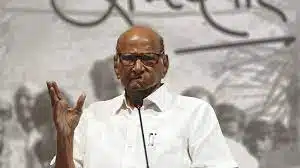Maharashtra has a long history of political dynasties, with the Pawars, Chavans, and Thackerays holding various positions, including that of chief minister. However, the 11 offspring of Govindrao and Shardabai Pawar have collectively had the greatest influence on the state’s social, economic, and political terrain.
Although Sharad Govindrao Pawar, who is 82 years old, is the most prominent and recognizable figure in the Pawar family, his other ten siblings have also established themselves in their individual areas of expertise.
Sharad Pawar was the eighth offspring of Govindrao and Shardabai Pawar, who had a combined total of eleven children consisting of seven sons and four daughters. Pawar’s political roots are believed to have been influenced by the social activism of his mother, Shardabai Pawar, who was associated with the Peasants and Workers Party (PWP) as well as the Congress. In 1938, Shardabai was elected unopposed in the local board elections in Pune, making her one of the rare female politicians in the district.
Sharad Pawar frequently acknowledges his mother for instilling in her children the values of hard work and dedication to public causes.
Vasantrao Pawar, Sharad’s eldest brother, was a renowned lawyer who practiced in Pune district before he was fatally shot in a land dispute. Three other brothers of Sharad have also passed away, including Dinkarrao Pawar, who was an agriculturist, Anantrao Pawar, who is Ajit Pawar’s father, and Madhavrao Pawar, who established his own industrial units.
Suryakant Pawar is an architect with interests in the real estate industry. He is followed by Sarla Jagtap and Saroj Patil. Patil, the wife of the late Narayan Dyandeo Patil, a prominent figure in the state’s leftist movement associated with the PWP. Sharad Pawar and N.D. Patil had different political perspectives and often clashed on various issues, but their political differences did not affect their personal relationship.
Following Sharad Pawar in birth order are Meena Jagdhane, Pratap Pawar, who is the head of the Sakal group of newspapers, and Neela Sasane.
The second generation of the Pawar family remained largely united, but the emergence of the third generation brought about increasing signs of discord within the clan.
Ajit, the son of Sharad’s elder brother Anantrao, followed the family’s tradition by entering politics through the cooperative sector. He has been by Pawar’s side since 1991-92 and had aspired to be the heir apparent after Sharad split from the Congress to form the NCP.
In 1999, at the age of 40, Sharad Pawar was promoted to the position of Cabinet minister in Maharashtra, having already served as a junior minister for more than nine years. He then led several heavyweight ministries, including Irrigation, Rural Development, Water Resources, and Finance, which helped him expand his influence throughout the state, including his stronghold of Western Maharashtra.
The entry of Sharad’s daughter, Supriya Sule, into politics during the 2009 parliamentary elections, sparked speculation about tension within the NCP’s first family.
Before the 2019 Assembly elections, Ajit publicly broke down over the Enforcement Directorate’s decision to name him and Sharad in a money laundering case, claiming that he was hurt. He resigned as an MLA and became unreachable.

The reason behind Sharad Pawar’s decision not to contest in the 2019 Lok Sabha elections was reportedly due to Ajit’s insistence on fielding his son, Parth, from Maval, which led to further tension in the family after Parth’s defeat. In 2019, Ajit Pawar broke away from Sharad Pawar to form a short-lived government with the BJP.
Although Sharad Pawar managed to outsmart his nephew and was instrumental in bringing him back to form the Maharashtra Vikas Aghadi (MVA) government, his recent announcement of retirement has once again raised questions about who will take control of the Pawar family.












